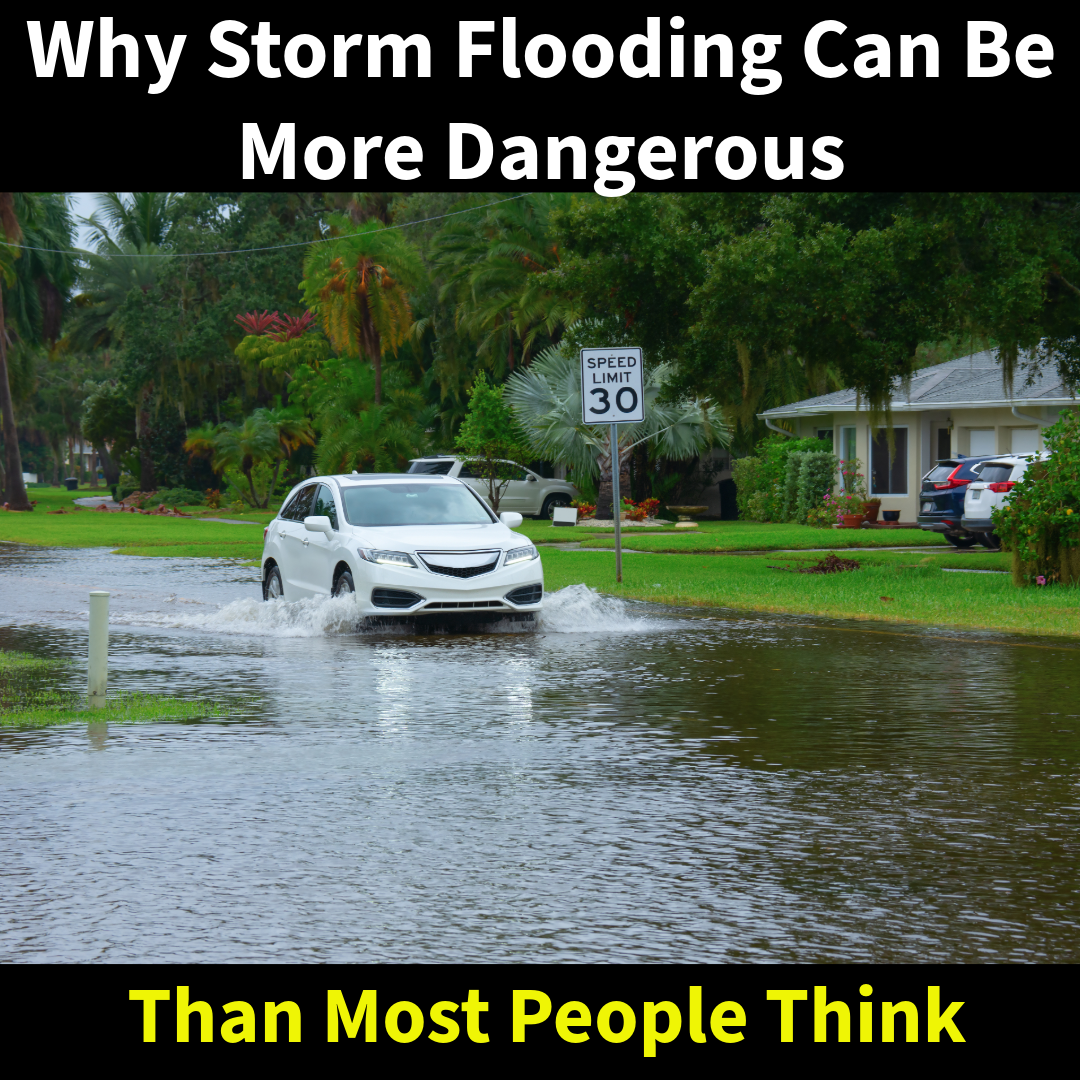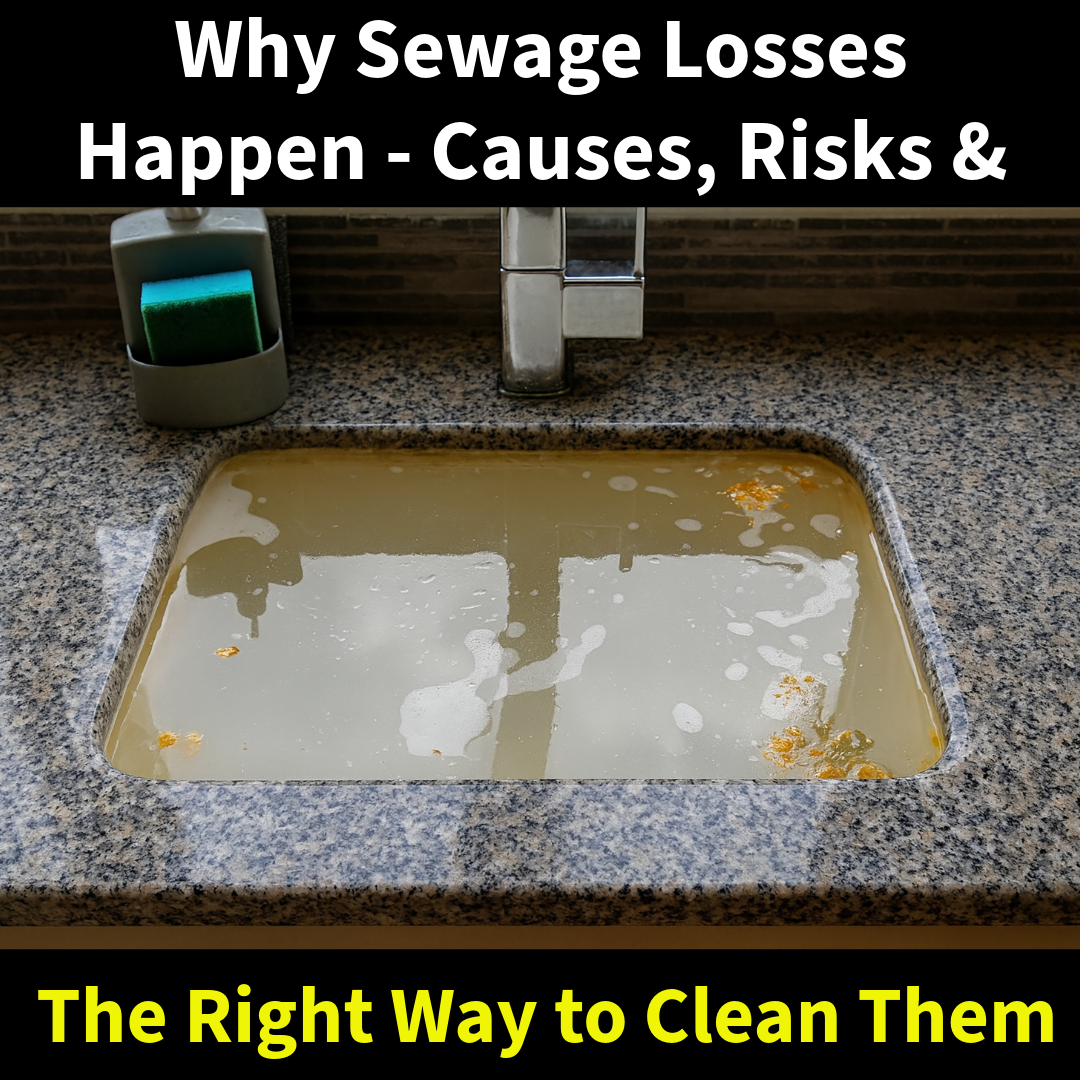When a major storm hits, most homeowners worry about rain leaking in through the roof or flooding the basement. But one of the most dangerous—and overlooked—risks during a storm is a sewage backup.
And the worst part? Many people don’t realize that not all water damage is equal.
What Is Category 3 Water?
In the restoration industry, all water losses are classified into categories based on contamination:
- Category 1: Clean water (e.g., supply line break)
- Category 2: Gray water (e.g., washing machine or dishwasher overflow)
- Category 3: Black water — water that contains sewage, waste, or other dangerous contaminants
Stormwater that floods a basement, overflows from a sump pump, or backs up from a toilet or floor drain is almost always Category 3. That means it’s dangerous, requires special cleanup procedures, and can’t just be dried out and forgotten.
Why Storms Trigger Sewage Backups
During a nor’easter or other major rain event, local sewer systems can get overwhelmed—especially in older towns and cities like those in our region. Water has nowhere to go, so it starts backing up into the lowest points it can find.
Common places that get hit:
- Basement drains
- Toilets on lower levels
- Shower pans and bathtubs
- Sump pump pits
- Crawlspaces
If the water that enters your home has odor, discoloration, or came up through a drain, it’s likely contaminated and dangerous to touch without protection.
The Risks of Improper Cleanup
Too often, property owners or general contractors treat Category 3 water like it’s just dirty rainwater. But here’s the reality:
- Sewage carries bacteria, viruses, and parasites
- Materials like drywall, carpet, and insulation can’t be sanitized once saturated
- Improper cleanup can cause long-term odor, structural damage, and mold
- Insurance can deny claims if it’s not handled according to proper protocols
If you see a cleanup crew show up with no protective gear and no containment barriers, it’s a red flag. They’re not doing it safely—or correctly.
How MSI Handles Category 3 Losses
We take black water cleanup seriously. Our certified team follows strict IICRC standards for sewage and stormwater cleanup:
- Full containment of affected areas
- Technicians in full PPE (suits, gloves, respirators)
- Safe removal of contaminated materials
- HEPA air filtration and odor control
- EPA-registered disinfectants applied throughout
- Moisture monitoring and follow-up clearance documentation
We also work directly with your insurance company to document every step of the process—from damage photos and readings to sanitization reports.
Final Thoughts
If you experience flooding during this weekend’s storm—especially water coming up from drains, toilets, or through walls and floors—do not assume it’s just water.
Category 3 losses require a professional response. Improper handling can lead to major health issues, long-term contamination, and denied insurance claims.
Call MSI 24/7 at 877-712-1600 for emergency sewage cleanup and stormwater response. We’ve been handling complex losses since 1998—and we’ll make sure it’s done right the first time.


